afterLoad (456.22KB) (496μs)
afterInitialise (1.27MB) (26.85ms)
afterRoute (840.55KB) (17.97ms)
beforeRenderComponent com_tags (20.62KB) (345μs)
afterRenderComponent com_tags (1.59MB) (74.95ms)
afterDispatch (27.41KB) (6.27ms)
beforeRenderRawModule mod_articles_category (READ MORE...) (423.86KB) (17.29ms)
Before Access::preloadComponents (all components) (50.9KB) (409μs)
After Access::preloadComponents (all components) (103.05KB) (3.4ms)
Before Access::getAssetRules (id:8 name:com_content) (840B) (18μs)
After Access::getAssetRules (id:8 name:com_content) (7.05KB) (39μs)
afterRenderRawModule mod_articles_category (READ MORE...) (5.16KB) (170ms)
beforeRenderRawModule mod_custom (BOOST YOUR IMMUNE DEFENSE) (6.45KB) (28μs)
afterRenderRawModule mod_custom (BOOST YOUR IMMUNE DEFENSE) (3.8KB) (4.24ms)
beforeRenderRawModule mod_tags_popular (Search) (2.36KB) (21μs)
afterRenderRawModule mod_tags_popular (Search) (18.77KB) (207ms)
beforeRenderRawModule mod_custom (Get additionel and more detailed knowledge ) (816B) (27μs)
afterRenderRawModule mod_custom (Get additionel and more detailed knowledge ) (1.55KB) (47μs)
beforeRenderRawModule mod_custom (Overview of vitamins, minerals, and essential fatty acids) (768B) (12μs)
afterRenderRawModule mod_custom (Overview of vitamins, minerals, and essential fatty acids) (960B) (23μs)
beforeRenderRawModule mod_custom (Q10 goes by many names) (608B) (10μs)
afterRenderRawModule mod_custom (Q10 goes by many names) (928B) (20μs)
beforeRenderRawModule mod_custom (Check this before you buy a Q10 product) (752B) (9μs)
afterRenderRawModule mod_custom (Check this before you buy a Q10 product) (944B) (19μs)
beforeRenderRawModule mod_custom (Are you taking supplements) (736B) (10μs)
afterRenderRawModule mod_custom (Are you taking supplements) (1.03KB) (18μs)
beforeRenderRawModule mod_custom (Weight loss that works) (736B) (9μs)
afterRenderRawModule mod_custom (Weight loss that works) (1.03KB) (18μs)
beforeRenderRawModule mod_custom (Antiaging) (720B) (10μs)
afterRenderRawModule mod_custom (Antiaging) (912B) (18μs)
beforeRenderRawModule mod_menu (Are you getting enough vitamins and minerals?) (2.5KB) (11μs)
afterRenderRawModule mod_menu (Are you getting enough vitamins and minerals?) (22.39KB) (5.5ms)
beforeRenderRawModule mod_menu (The key to increased well-being) (736B) (27μs)
afterRenderRawModule mod_menu (The key to increased well-being) (17.83KB) (279μs)
beforeRenderRawModule mod_menu (Did you know.....) (720B) (16μs)
afterRenderRawModule mod_menu (Did you know.....) (25.52KB) (288μs)
beforeRenderRawModule mod_custom (Useful Links) (1.06KB) (16μs)
afterRenderRawModule mod_custom (Useful Links) (1.02KB) (33μs)
beforeRenderRawModule mod_custom (Chronic fatigue tied Alan to his bed but Q10 capsules saved him:) (244.28KB) (11.78ms)
afterRenderRawModule mod_custom (Chronic fatigue tied Alan to his bed but Q10 capsules saved him:) (1.06KB) (43μs)
beforeRenderModule mod_custom (Chronic fatigue tied Alan to his bed but Q10 capsules saved him:) (768B) (4μs)
afterRenderModule mod_custom (Chronic fatigue tied Alan to his bed but Q10 capsules saved him:) (1.3KB) (57μs)
beforeRenderRawModule mod_custom (Cholesterol-lowering without side effects:) (368B) (13μs)
afterRenderRawModule mod_custom (Cholesterol-lowering without side effects:) (1.06KB) (23μs)
beforeRenderModule mod_custom (Cholesterol-lowering without side effects:) (752B) (2μs)
afterRenderModule mod_custom (Cholesterol-lowering without side effects:) (1.28KB) (30μs)
beforeRenderModule mod_articles_category (READ MORE...) (20.82KB) (9.43ms)
afterRenderModule mod_articles_category (READ MORE...) (1.25KB) (55μs)
beforeRenderModule mod_custom (BOOST YOUR IMMUNE DEFENSE) (6.81KB) (14μs)
afterRenderModule mod_custom (BOOST YOUR IMMUNE DEFENSE) (1.28KB) (27μs)
beforeRenderModule mod_tags_popular (Search) (1.98KB) (12μs)
afterRenderModule mod_tags_popular (Search) (1.27KB) (22μs)
beforeRenderModule mod_custom (Get additionel and more detailed knowledge ) (1.17KB) (10μs)
afterRenderModule mod_custom (Get additionel and more detailed knowledge ) (1.3KB) (22μs)
beforeRenderModule mod_custom (Overview of vitamins, minerals, and essential fatty acids) (384B) (8μs)
afterRenderModule mod_custom (Overview of vitamins, minerals, and essential fatty acids) (1.31KB) (22μs)
beforeRenderModule mod_custom (Q10 goes by many names) (208B) (9μs)
afterRenderModule mod_custom (Q10 goes by many names) (1.27KB) (21μs)
beforeRenderModule mod_custom (Check this before you buy a Q10 product) (352B) (8μs)
afterRenderModule mod_custom (Check this before you buy a Q10 product) (1.28KB) (21μs)
beforeRenderModule mod_custom (Are you taking supplements) (352B) (8μs)
afterRenderModule mod_custom (Are you taking supplements) (1.28KB) (21μs)
beforeRenderModule mod_custom (Weight loss that works) (336B) (8μs)
afterRenderModule mod_custom (Weight loss that works) (1.27KB) (20μs)
beforeRenderModule mod_custom (Antiaging) (336B) (9μs)
afterRenderModule mod_custom (Antiaging) (3.77KB) (20μs)
beforeRenderModule mod_menu (Are you getting enough vitamins and minerals?) (2.13KB) (11μs)
afterRenderModule mod_menu (Are you getting enough vitamins and minerals?) (1.3KB) (21μs)
beforeRenderModule mod_menu (The key to increased well-being) (352B) (10μs)
afterRenderModule mod_menu (The key to increased well-being) (1.28KB) (20μs)
beforeRenderModule mod_menu (Did you know.....) (336B) (10μs)
afterRenderModule mod_menu (Did you know.....) (1.27KB) (20μs)
beforeRenderModule mod_custom (Useful Links) (1.44KB) (9μs)
afterRenderModule mod_custom (Useful Links) (1.27KB) (21μs)
beforeRenderRawModule mod_menu (Main Menu - English) (29.14KB) (6.17ms)
afterRenderRawModule mod_menu (Main Menu - English) (192.45KB) (7.74ms)
beforeRenderModule mod_menu (Main Menu - English) (720B) (5μs)
afterRenderModule mod_menu (Main Menu - English) (4.86KB) (56μs)
beforeRenderRawModule mod_languages (Sprogskift) (3.94KB) (19μs)
afterRenderRawModule mod_languages (Sprogskift) (22.57KB) (9.19ms)
beforeRenderModule mod_languages (Sprogskift) (720B) (6μs)
afterRenderModule mod_languages (Sprogskift) (5.31KB) (21μs)
beforeRenderRawModule mod_finder () (6.34KB) (11μs)
afterRenderRawModule mod_finder () (128.59KB) (7.78ms)
beforeRenderModule mod_finder () (704B) (6μs)
afterRenderModule mod_finder () (3.29KB) (34μs)
beforeRenderRawModule mod_custom () (6.62KB) (147μs)
afterRenderRawModule mod_custom () (22.64KB) (4.91ms)
beforeRenderModule mod_custom () (704B) (6μs)
afterRenderModule mod_custom () (1.23KB) (50μs)
beforeRenderRawModule mod_menu (Main Menu - English) (5.07KB) (106μs)
afterRenderRawModule mod_menu (Main Menu - English) (6.3KB) (821μs)
beforeRenderModule mod_menu (Main Menu - English) (720B) (4μs)
afterRenderModule mod_menu (Main Menu - English) (1.25KB) (45μs)
beforeRenderRawModule mod_languages (Sprogskift Mobil) (912B) (17μs)
afterRenderRawModule mod_languages (Sprogskift Mobil) (3.89KB) (4.79ms)
beforeRenderModule mod_languages (Sprogskift Mobil) (720B) (6μs)
afterRenderModule mod_languages (Sprogskift Mobil) (1.27KB) (36μs)
beforeRenderRawModule mod_finder () (2.3KB) (12μs)
afterRenderRawModule mod_finder () (6.29KB) (2.62ms)
beforeRenderModule mod_finder () (704B) (3μs)
afterRenderModule mod_finder () (1.23KB) (43μs)
beforeRenderRawModule mod_custom () (8.66KB) (177μs)
afterRenderRawModule mod_custom () (904B) (140μs)
beforeRenderModule mod_custom () (704B) (3μs)
afterRenderModule mod_custom () (2.43KB) (24μs)
beforeRenderRawModule mod_custom () (688B) (84μs)
afterRenderRawModule mod_custom () (896B) (91μs)
beforeRenderModule mod_custom () (704B) (2μs)
afterRenderModule mod_custom () (2.71KB) (21μs)
afterRender (276.46KB) (21.87ms)
| 1 x afterRenderRawModule mod_tags_popular (Search) (18.77KB) (33.13%) | 207.28ms |
| 1 x afterRenderRawModule mod_articles_category (READ MORE...) (5.16KB) (27.23%) | 170.38ms |
| 1 x afterRenderComponent com_tags (1.59MB) (11.98%) | 74.95ms |
| 1 x afterInitialise (1.27MB) (4.29%) | 26.85ms |
| 1 x afterRender (276.46KB) (3.5%) | 21.87ms |
| 1 x afterRoute (840.55KB) (2.87%) | 17.97ms |
| 1 x beforeRenderRawModule mod_articles_category (READ MORE...) (423.86KB) (2.76%) | 17.29ms |
| 1 x beforeRenderRawModule mod_custom (Chronic fatigue tied Alan to his bed but Q10 capsules saved him:) (244.28KB) (1.88%) | 11.78ms |
| 1 x beforeRenderModule mod_articles_category (READ MORE...) (20.82KB) (1.51%) | 9.43ms |
| 1 x afterRenderRawModule mod_languages (Sprogskift) (22.57KB) (1.47%) | 9.19ms |
| 1 x afterRenderRawModule mod_finder () (128.59KB) (1.24%) | 7.78ms |
| 1 x afterRenderRawModule mod_menu (Main Menu - English) (192.45KB) (1.24%) | 7.74ms |
| 1 x afterDispatch (27.41KB) (1%) | 6.27ms |
| 1 x beforeRenderRawModule mod_menu (Main Menu - English) (29.14KB) (0.99%) | 6.17ms |
| 1 x afterRenderRawModule mod_menu (Are you getting enough vitamins and minerals?) (22.39KB) (0.88%) | 5.50ms |
| 1 x afterRenderRawModule mod_custom () (22.64KB) (0.78%) | 4.91ms |
| 1 x afterRenderRawModule mod_languages (Sprogskift Mobil) (3.89KB) (0.76%) | 4.79ms |
| 1 x afterRenderRawModule mod_custom (BOOST YOUR IMMUNE DEFENSE) (3.8KB) (0.68%) | 4.24ms |
| 1 x After Access::preloadComponents (all components) (103.05KB) (0.54%) | 3.40ms |
| 1 x afterRenderRawModule mod_finder () (6.29KB) (0.42%) | 2.62ms |
| 1 x afterRenderRawModule mod_menu (Main Menu - English) (6.3KB) (0.13%) | 821μs |
| 1 x afterLoad (456.22KB) (0.08%) | 496μs |
| 1 x Before Access::preloadComponents (all components) (50.9KB) (0.07%) | 409μs |
| 1 x beforeRenderComponent com_tags (20.62KB) (0.06%) | 345μs |
| 1 x afterRenderRawModule mod_menu (Did you know.....) (25.52KB) (0.05%) | 288μs |
| 1 x afterRenderRawModule mod_menu (The key to increased well-being) (17.83KB) (0.04%) | 279μs |
| 1 x beforeRenderRawModule mod_custom () (8.66KB) (0.03%) | 177μs |
| 1 x beforeRenderRawModule mod_custom () (6.62KB) (0.02%) | 147μs |
| 1 x afterRenderRawModule mod_custom () (904B) (0.02%) | 140μs |
| 1 x beforeRenderRawModule mod_menu (Main Menu - English) (5.07KB) (0.02%) | 106μs |
| 1 x afterRenderRawModule mod_custom () (896B) (0.01%) | 91μs |
| 1 x beforeRenderRawModule mod_custom () (688B) (0.01%) | 84μs |
| 1 x afterRenderModule mod_custom (Chronic fatigue tied Alan to his bed but Q10 capsules saved him:) (1.3KB) (0.01%) | 57μs |
| 1 x afterRenderModule mod_menu (Main Menu - English) (4.86KB) (0.01%) | 56μs |
| 1 x afterRenderModule mod_articles_category (READ MORE...) (1.25KB) (0.01%) | 55μs |
| 1 x afterRenderModule mod_custom () (1.23KB) (0.01%) | 50μs |
| 1 x afterRenderRawModule mod_custom (Get additionel and more detailed knowledge ) (1.55KB) (0.01%) | 47μs |
| 1 x afterRenderModule mod_menu (Main Menu - English) (1.25KB) (0.01%) | 45μs |
| 1 x afterRenderModule mod_finder () (1.23KB) (0.01%) | 43μs |
| 1 x afterRenderRawModule mod_custom (Chronic fatigue tied Alan to his bed but Q10 capsules saved him:) (1.06KB) (0.01%) | 43μs |
| 1 x After Access::getAssetRules (id:8 name:com_content) (7.05KB) (0.01%) | 39μs |
| 1 x afterRenderModule mod_languages (Sprogskift Mobil) (1.27KB) (0.01%) | 36μs |
| 1 x afterRenderModule mod_finder () (3.29KB) (0.01%) | 34μs |
| 1 x afterRenderRawModule mod_custom (Useful Links) (1.02KB) (0.01%) | 33μs |
| 1 x afterRenderModule mod_custom (Cholesterol-lowering without side effects:) (1.28KB) (0%) | 30μs |
| 1 x beforeRenderRawModule mod_custom (BOOST YOUR IMMUNE DEFENSE) (6.45KB) (0%) | 28μs |
| 1 x beforeRenderRawModule mod_custom (Get additionel and more detailed knowledge ) (816B) (0%) | 27μs |
| 1 x beforeRenderRawModule mod_menu (The key to increased well-being) (736B) (0%) | 27μs |
| 1 x afterRenderModule mod_custom (BOOST YOUR IMMUNE DEFENSE) (1.28KB) (0%) | 27μs |
| 1 x afterRenderModule mod_custom () (2.43KB) (0%) | 24μs |
| 1 x afterRenderRawModule mod_custom (Overview of vitamins, minerals, and essential fatty acids) (960B) (0%) | 23μs |
| 1 x afterRenderRawModule mod_custom (Cholesterol-lowering without side effects:) (1.06KB) (0%) | 23μs |
| 1 x afterRenderModule mod_tags_popular (Search) (1.27KB) (0%) | 22μs |
| 1 x afterRenderModule mod_custom (Get additionel and more detailed knowledge ) (1.3KB) (0%) | 22μs |
| 1 x afterRenderModule mod_custom (Overview of vitamins, minerals, and essential fatty acids) (1.31KB) (0%) | 22μs |
| 1 x afterRenderModule mod_custom (Check this before you buy a Q10 product) (1.28KB) (0%) | 21μs |
| 1 x beforeRenderRawModule mod_tags_popular (Search) (2.36KB) (0%) | 21μs |
| 1 x afterRenderModule mod_custom (Q10 goes by many names) (1.27KB) (0%) | 21μs |
| 1 x afterRenderModule mod_custom (Are you taking supplements) (1.28KB) (0%) | 21μs |
| 1 x afterRenderModule mod_menu (Are you getting enough vitamins and minerals?) (1.3KB) (0%) | 21μs |
| 1 x afterRenderModule mod_custom (Useful Links) (1.27KB) (0%) | 21μs |
| 1 x afterRenderModule mod_languages (Sprogskift) (5.31KB) (0%) | 21μs |
| 1 x afterRenderModule mod_custom () (2.71KB) (0%) | 21μs |
| 1 x afterRenderRawModule mod_custom (Q10 goes by many names) (928B) (0%) | 20μs |
| 1 x afterRenderModule mod_custom (Weight loss that works) (1.27KB) (0%) | 20μs |
| 1 x afterRenderModule mod_custom (Antiaging) (3.77KB) (0%) | 20μs |
| 1 x afterRenderModule mod_menu (The key to increased well-being) (1.28KB) (0%) | 20μs |
| 1 x afterRenderModule mod_menu (Did you know.....) (1.27KB) (0%) | 20μs |
| 1 x afterRenderRawModule mod_custom (Check this before you buy a Q10 product) (944B) (0%) | 19μs |
| 1 x beforeRenderRawModule mod_languages (Sprogskift) (3.94KB) (0%) | 19μs |
| 1 x Before Access::getAssetRules (id:8 name:com_content) (840B) (0%) | 18μs |
| 1 x afterRenderRawModule mod_custom (Antiaging) (912B) (0%) | 18μs |
| 1 x afterRenderRawModule mod_custom (Are you taking supplements) (1.03KB) (0%) | 18μs |
| 1 x afterRenderRawModule mod_custom (Weight loss that works) (1.03KB) (0%) | 18μs |
| 1 x beforeRenderRawModule mod_languages (Sprogskift Mobil) (912B) (0%) | 17μs |
| 1 x beforeRenderRawModule mod_menu (Did you know.....) (720B) (0%) | 16μs |
| 1 x beforeRenderRawModule mod_custom (Useful Links) (1.06KB) (0%) | 16μs |
| 1 x beforeRenderModule mod_custom (BOOST YOUR IMMUNE DEFENSE) (6.81KB) (0%) | 14μs |
| 1 x beforeRenderRawModule mod_custom (Cholesterol-lowering without side effects:) (368B) (0%) | 13μs |
| 1 x beforeRenderModule mod_tags_popular (Search) (1.98KB) (0%) | 12μs |
| 1 x beforeRenderRawModule mod_custom (Overview of vitamins, minerals, and essential fatty acids) (768B) (0%) | 12μs |
| 1 x beforeRenderRawModule mod_finder () (2.3KB) (0%) | 12μs |
| 1 x beforeRenderRawModule mod_menu (Are you getting enough vitamins and minerals?) (2.5KB) (0%) | 11μs |
| 1 x beforeRenderModule mod_menu (Are you getting enough vitamins and minerals?) (2.13KB) (0%) | 11μs |
| 1 x beforeRenderRawModule mod_finder () (6.34KB) (0%) | 11μs |
| 3 x beforeRenderModule mod_custom () (704B) (0%) | 11μs |
| 1 x beforeRenderRawModule mod_custom (Are you taking supplements) (736B) (0%) | 10μs |
| 1 x beforeRenderRawModule mod_custom (Antiaging) (720B) (0%) | 10μs |
| 1 x beforeRenderModule mod_custom (Get additionel and more detailed knowledge ) (1.17KB) (0%) | 10μs |
| 1 x beforeRenderModule mod_menu (The key to increased well-being) (352B) (0%) | 10μs |
| 1 x beforeRenderModule mod_menu (Did you know.....) (336B) (0%) | 10μs |
| 1 x beforeRenderRawModule mod_custom (Q10 goes by many names) (608B) (0%) | 10μs |
| 1 x beforeRenderRawModule mod_custom (Check this before you buy a Q10 product) (752B) (0%) | 9μs |
| 1 x beforeRenderRawModule mod_custom (Weight loss that works) (736B) (0%) | 9μs |
| 1 x beforeRenderModule mod_custom (Q10 goes by many names) (208B) (0%) | 9μs |
| 1 x beforeRenderModule mod_custom (Useful Links) (1.44KB) (0%) | 9μs |
| 2 x beforeRenderModule mod_menu (Main Menu - English) (720B) (0%) | 9μs |
| 1 x beforeRenderModule mod_custom (Antiaging) (336B) (0%) | 9μs |
| 2 x beforeRenderModule mod_finder () (704B) (0%) | 9μs |
| 1 x beforeRenderModule mod_custom (Overview of vitamins, minerals, and essential fatty acids) (384B) (0%) | 8μs |
| 1 x beforeRenderModule mod_custom (Weight loss that works) (336B) (0%) | 8μs |
| 1 x beforeRenderModule mod_custom (Check this before you buy a Q10 product) (352B) (0%) | 8μs |
| 1 x beforeRenderModule mod_custom (Are you taking supplements) (352B) (0%) | 8μs |
| 1 x beforeRenderModule mod_languages (Sprogskift) (720B) (0%) | 6μs |
| 1 x beforeRenderModule mod_languages (Sprogskift Mobil) (720B) (0%) | 6μs |
| 1 x beforeRenderModule mod_custom (Chronic fatigue tied Alan to his bed but Q10 capsules saved him:) (768B) (0%) | 4μs |
| 1 x beforeRenderModule mod_custom (Cholesterol-lowering without side effects:) (752B) (0%) | 2μs |
 Seniors have an increased risk of cardiovascular disease, which is the leading cause of death. It is commonly known that diet plays a key role in preventing these diseases, and a team of scientists therefore decided to look closer at zincbecause of this nutrient’s many functions in the heart and cardiovascular system. The scientists found that older people often lack zinc for different reasons. Therefore, the dietary guidelines for zinc in old age should be reconsidered with regard to cardiovascular health and other zinc-dependent functions.
Seniors have an increased risk of cardiovascular disease, which is the leading cause of death. It is commonly known that diet plays a key role in preventing these diseases, and a team of scientists therefore decided to look closer at zincbecause of this nutrient’s many functions in the heart and cardiovascular system. The scientists found that older people often lack zinc for different reasons. Therefore, the dietary guidelines for zinc in old age should be reconsidered with regard to cardiovascular health and other zinc-dependent functions.







 Heart failure is a disease with a variety of different symptoms and a high mortality rate because the heart’s pumping function is impaired. Heart failure is also characterized by chronic inflammation that worsens the prognosis. Apparently, fish oil supplementation can reduce chronic inflammation, according to a meta-analysis that is published in Heart Failure Reviews. In fact, eating more
Heart failure is a disease with a variety of different symptoms and a high mortality rate because the heart’s pumping function is impaired. Heart failure is also characterized by chronic inflammation that worsens the prognosis. Apparently, fish oil supplementation can reduce chronic inflammation, according to a meta-analysis that is published in Heart Failure Reviews. In fact, eating more 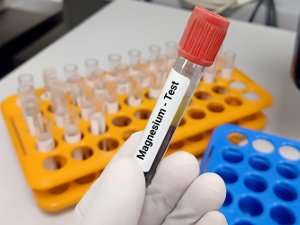 Chronic heart failure is a clinical syndrome that involves, among other things, reduced heart pumping function. The condition is often life-threatening. A new study that is published in Journal of the American Heart Association looks closer at how supplementation with
Chronic heart failure is a clinical syndrome that involves, among other things, reduced heart pumping function. The condition is often life-threatening. A new study that is published in Journal of the American Heart Association looks closer at how supplementation with 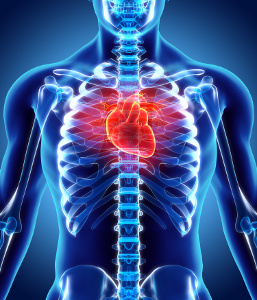 Cardiovascular disease is the leading cause of death worldwide, and our diet and lifestyle play a major role. According to an Australian study published in British Medical Journal, high-dosed
Cardiovascular disease is the leading cause of death worldwide, and our diet and lifestyle play a major role. According to an Australian study published in British Medical Journal, high-dosed
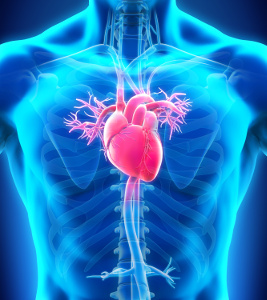 Atrial fibrillation is a rhythm disturbance in the electrical system of the heart. It is also one of the most common heart disorders and can be both harmless and potentially life-threatening. Lack of
Atrial fibrillation is a rhythm disturbance in the electrical system of the heart. It is also one of the most common heart disorders and can be both harmless and potentially life-threatening. Lack of  Chronic heart failure is a potentially life-threatening condition that affects millions of people worldwide. A group of scientists recently looked at the relation between chronic heart failure and
Chronic heart failure is a potentially life-threatening condition that affects millions of people worldwide. A group of scientists recently looked at the relation between chronic heart failure and 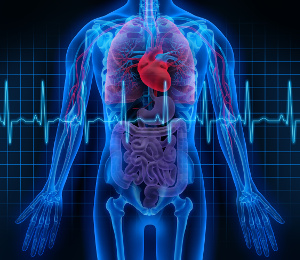 Cardiovascular diseases are widespread and one of the major causes of death. The risk is increased by factors such as ageing, diabetes, and overweight. One of the underlying causes is oxidative stress, which is an imbalance between free radicals and antioxidants.
Cardiovascular diseases are widespread and one of the major causes of death. The risk is increased by factors such as ageing, diabetes, and overweight. One of the underlying causes is oxidative stress, which is an imbalance between free radicals and antioxidants.  Diabetes damages the circulatory system in a number of ways that are linked to impaired quality of life and early death. A meta-analysis shows that if type 2 diabetics take supplements of
Diabetes damages the circulatory system in a number of ways that are linked to impaired quality of life and early death. A meta-analysis shows that if type 2 diabetics take supplements of 


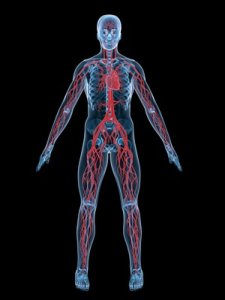 Lack of vitamin K2 increases your risk of stiff arteries and atherosclerosis, which is the leading cause of death worldwide. This was observed in two new studies, one that is published in the American Journal of Hypertension, the other in the journal Nephron. A third study that is published in Clinical Nutrition reveals that daily supplementation with vitamin K2 lowers the risk of early death caused by cardiovascular disease. Our diet used to provide substantially more vitamin K2 from fermented foods than now, and this type of food deserves a comeback. It is also important to know the difference between vitamin K1 and vitamin K2.
Lack of vitamin K2 increases your risk of stiff arteries and atherosclerosis, which is the leading cause of death worldwide. This was observed in two new studies, one that is published in the American Journal of Hypertension, the other in the journal Nephron. A third study that is published in Clinical Nutrition reveals that daily supplementation with vitamin K2 lowers the risk of early death caused by cardiovascular disease. Our diet used to provide substantially more vitamin K2 from fermented foods than now, and this type of food deserves a comeback. It is also important to know the difference between vitamin K1 and vitamin K2. Cardiovascular diseases are the leading cause of death and, as it turns out, alarming problems with
Cardiovascular diseases are the leading cause of death and, as it turns out, alarming problems with  "After about one week of taking the Q10 supplement I could feel a huge difference," says 23-year old Alan Piccini, who has been suffering from extreme fatigue and muscle aches ever since he was a child.
"After about one week of taking the Q10 supplement I could feel a huge difference," says 23-year old Alan Piccini, who has been suffering from extreme fatigue and muscle aches ever since he was a child. “Taking capsules with co-enzyme Q10 has freed me of the severe side effects of my cholesterol lowering medicine,” Mrs Franken explains.
“Taking capsules with co-enzyme Q10 has freed me of the severe side effects of my cholesterol lowering medicine,” Mrs Franken explains.